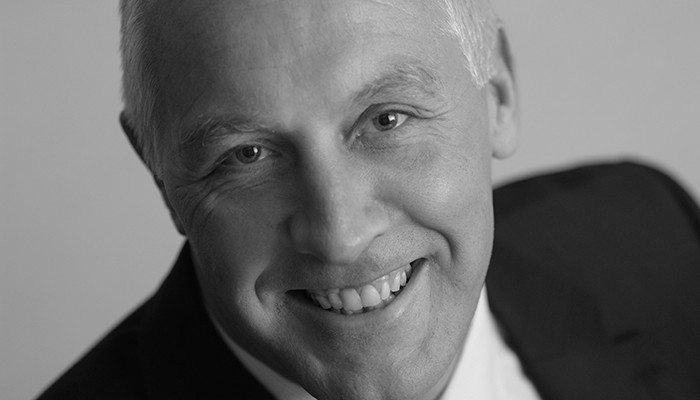Industry leaders: Paul Massey, IFS - Yesterday, Today, Tomorrow (Part Three)
Jul 03, 2015 • Features • cloud • ERP • IFS • Interview • Software and Apps • software and apps
So far in our exclusive interview with Paul Massey, Managing Director of IFS, we’ve taken a look at where Applications 9 sits against previous milestones in both Massey and the Swedish ERP provider's history in part one and then in part two we looked at whether the field service world is finally ready for the Cloud and IoT.
Now in the final part of this interview the conversation turns to the impact of consumerisation on enterprise software and why being an ERP provider can be a double edged sword for IFS when it comes to working with Field Service companies….
Given the trend towards consumerisation in enterprise software across recent years it is evident that this is something that is ingrained within the IFS development mentality.
“It is getting bigger and bigger,” admits Massey. “I’ve been around a few years and it just wasn’t as relevant before because for example the first graphical interface in work someone used was probably much more up to date than the software they used in their personal life. Now its completely the other way around. Our challenge is sometimes our applications may look really old and dated compared to what they use on their tablet or what they use on their PC at home.”
If the users don’t like the application, then it is much harder to get them to use it irrespective of the business benefits and everything else.
“So since 7.5 with the .net release the UK has been a big focus of what we are trying to do because if you don’t get their hearts you wont get their minds. That’s the challenge: you can have as much complex detailed functionality as you like but if the end user can’t use it in a relatively intuitive way then it’s wasted.”
As the conversation drills down to more specific field service side of their offering I was keen to see if Massey, felt that being an ERP provider was a help or a hindrance to them in terms of how they approach field service. Particularly given that they essentially have to separate offerings in the space.
“I think being primarily known as an ERP provider is a bit of a double edged sword as far as field service is concerned,” Massey begins. “We do have customers that use the original IFS service management functionality which is very much best suited to being at the back end of something where you’ve manufactured it, you commissioned it and then you maintain it. So your following the whole asset lifecycle and its probably a more complex asset maintenance scenario where there is a field service element but its part of something wider and in that story the whole integrated ERP approach is really powerful. All the data moves from one phase of the lifecycle to the next, seamlessly.”
The whole integrated ERP approach is really powerful. All the data moves from one phase of the lifecycle to the next, seamlessly.
“So it’s about understanding the audience, understanding what a particular customer wants and that’s why we have the two offerings that we have in field service - the FSM product as well as the embedded service management product as well. Plus then they’ve obviously got mobility which can talk to both of those things.”
“Sometimes it’s a challenge when we talk to a prospect to understand which sort of flavour of service do they want. There are some obvious things like the number of resources your scheduling, the geographical coverage or whether they have some specific end functionality which can tend to push you in one way or another but ultimately it is about understanding what the customer wants at the end of the day. It’s a fairly glib cliché but its true.”
“If we are into highly integrated service management solution space then we think we can absolutely compete with everyone and that’s why we are strong in Defence and areas like that because it is a more complex typical service solution.”
“On the simpler field service side we believe some of the things that we have done in scheduling, in mobility and with the latest release of the field service product we believe we can compete as a standalone with anybody as well.”
“I think particularly our close integration with our scheduling application gives us some real benefits,” Massey continues. You’ve always got the question of which version of mobility do you want you’ve got Android, IoS Windows and all those things but we certainly believe with the two offerings we can cover all the bases.”
“That’s why we’ve invested so heavily in service over the last few years with the acquisitions made and the functionality we’ve added in these releases. We see it as a big area of growth for IFS going forward. It’s a massive area and in most geographies that sector is still growing very strongly. Service continues to be a major focus for us and hopefully our investment decisions will pay off.”





















 Field Service News is published by 1927 Media Ltd, an independent publisher whose sole focus is on the field service sector. As such our entire resources are focused on helping drive the field service sector forwards and aiming to best serve our industry through honest, incisive and innovative media coverage of the global field service sector.
Field Service News is published by 1927 Media Ltd, an independent publisher whose sole focus is on the field service sector. As such our entire resources are focused on helping drive the field service sector forwards and aiming to best serve our industry through honest, incisive and innovative media coverage of the global field service sector.
Leave a Reply